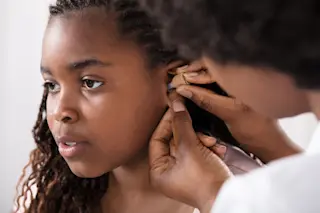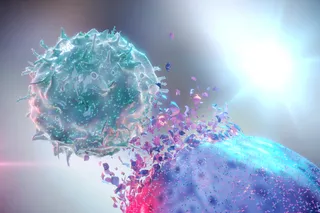As someone who was born deaf, I’m concerned about the latest application of a gene-editing tool called CRISPR 2.0. And I'm not alone. In June, researchers at Boston Children's Hospital, Harvard and MIT announced that, using mice, they figured out how to use the technology to temporarily “correct” a mutation in the TMC1 gene, which can cause deafness in babies. The work is a monumental step toward reversing hereditary deafness in people with a single injection. It could drastically change the fact that two to three out of every 1,000 U.S. children are born deaf or hard of hearing, according to research completed in 2007.
CRISPR 2.0 is a more precise version of the gene-editing tool CRISPR-Cas9, which works like a pair of molecular scissors. Scientists use it to cut strands of DNA. These scissors are built from the defense mechanisms of bacteria, which chop up and destroy the DNA ...














